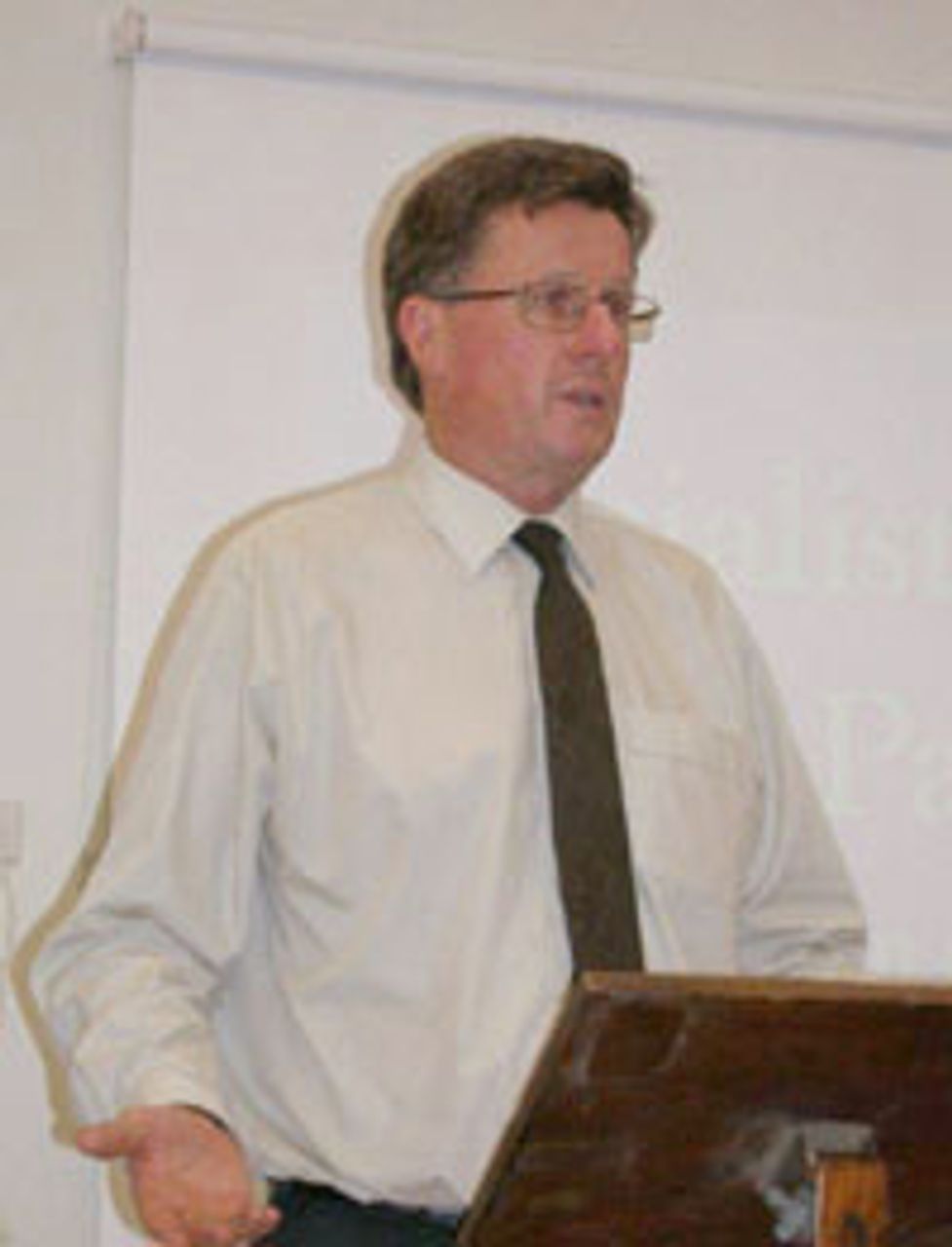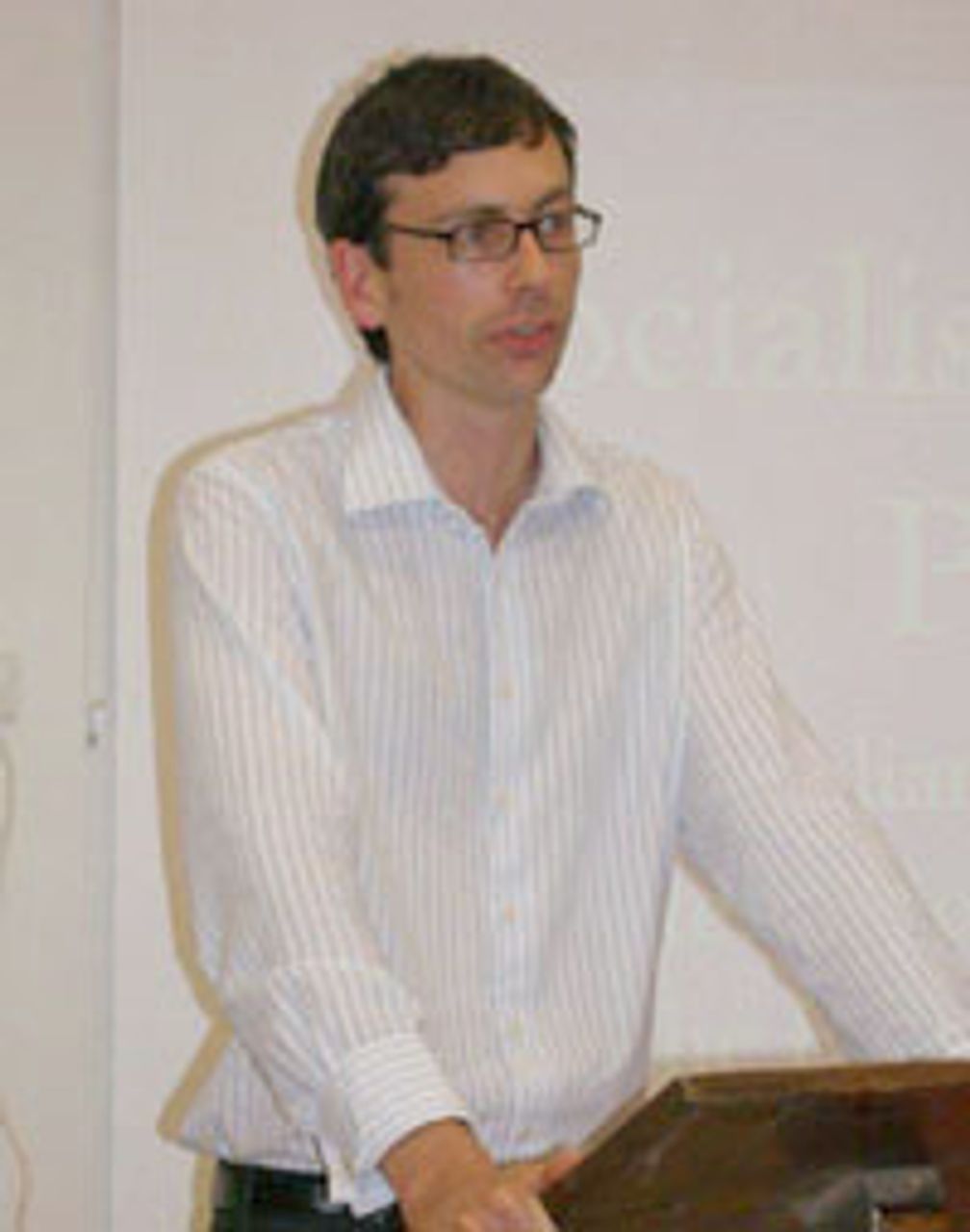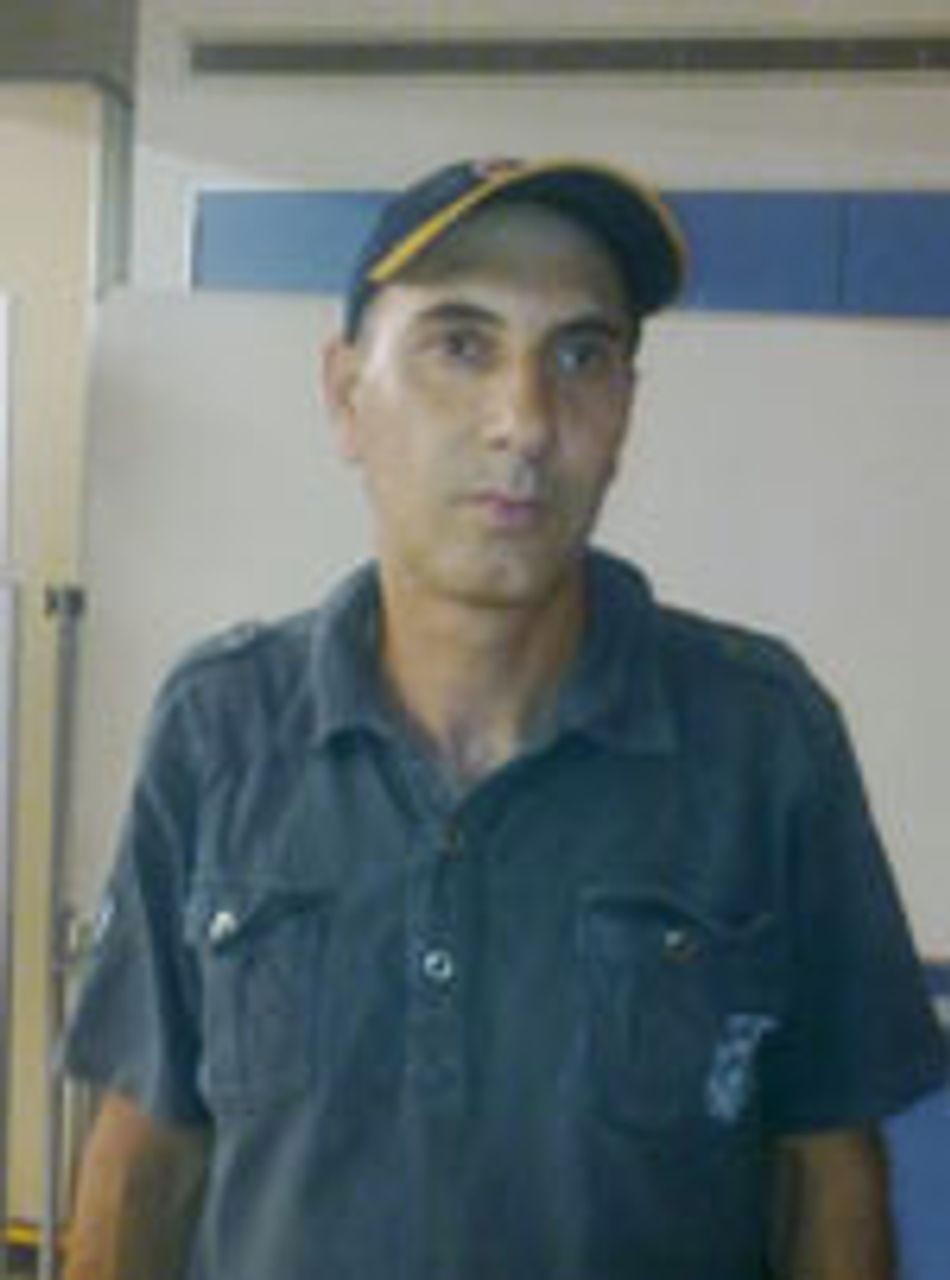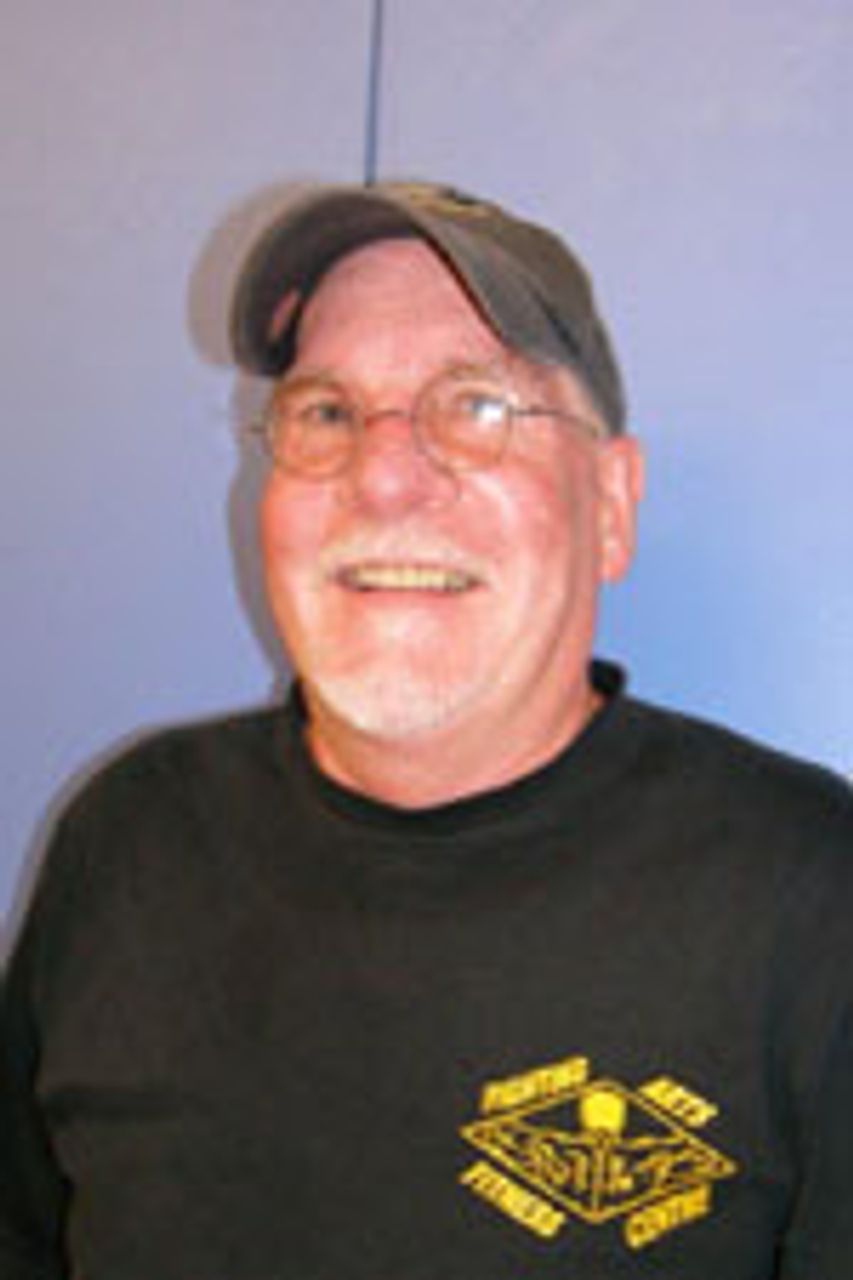The Socialist Equality Party (Australia) held its first meeting for the Broadmeadows by-election in Victoria last Wednesday. Those in attendance included workers who had met SEP campaigners in the working class electorate for the first time, and others who had attended the party’s recent public meeting in defence of WikiLeaks.
 Peter Byrne
Peter ByrnePeter Byrne, the SEP’s candidate in the by-election, explained that the party was fighting to provide a means through which the working class could advance its independent interests, in opposition to the Labor Party and all other sections of the political establishment. He reviewed the factional brawl within the Labor Party over its pre-selection for a candidate in Broadmeadows, which concluded with the selection of wealthy property developer Frank Maguire. The squalid episode, Byrne explained, provided another example of the party’s moribund character, demonstrating its function as an instrument for prosecuting the interests of the financial and big business oligarchy. “Frank McGuire personifies the Labor Party of the 21st Century—comprised of upper middle class layers with extensive personal connections to the ultra-wealthy,” he said.
Byrne outlined some of the social statistics that demonstrated the devastating contempt of the Labor Party for working class areas such as Broadmeadows, which has a 15.9 percent unemployment rate and Victoria’s lowest median family weekly income. He also pointed to recent media reports showing that people now had to wait up to 18 years before being able to access public housing.
Byrne said the social crisis in working class areas like Broadmeadows was a damning refutation of the various positions put forward in the media that Australia had somehow avoided the implications of the 2008 global financial crash. He briefly reviewed the assessment of the Labor Party and the origins of capitalism in Australia made in The Historical and International Foundations of the Socialist Equality Party (Australia), the document adopted at the party’s founding congress in January 2010. He quoted: “The absence, as yet, of major social struggles does not signify that the laws of the class struggle have somehow been suspended or overcome. On the contrary, it points to the fact that mounting social and economic tensions can find no outlet within the existing, ossified, political system. The longer the present apparent stability continues, the more explosive will be the inevitable political eruption.”
Byrne reviewed some of the recent bitter experiences of workers with the trade unions—including struggles at Woolworths in Broadmeadows, Visy, and Swift Meats—and outlined the necessity for the formation of new and independent organisations of the working class.
Byrne concluded by outlining the SEP’s call for the formation of a workers’ government, reviewing the critical political demands raised in the party’s election statement. (See “The socialist alternative in the Broadmeadows by-election”)
 Patrick O'Connor
Patrick O'ConnorWorld Socialist Web Site correspondent Patrick O’Connor focussed on the international context in which the Broadmeadows by election was taking place. He raised that the unfolding revolution in Egypt, following the ousting of Tunisia’s President Zine El Abadine Ben Ali, was a clear indication of the re-emergence of the international working class into the political arena.
The Mubarak regime’s repressive measures, including an unprecedented national shutdown of the Internet and mobilisation of provocateurs to pose as looters, had been unable to stem the movement of the masses, O’Connor explained, forcing Mubarak to announce he would not contest the upcoming presidential election in September.
Washington was trying to keep him in office as long as possible while, at the same time, fashioning a regime to uphold the strategic interests of US imperialism in the region.
O’Connor cited an article in the Financial Times on January 29 which noted the increasingly polarised character of Egyptian society: “As the cost of their basic goods soared, the wealth of the tiny elite became more conspicuous with luxury goods filling the shelves of new malls. Gated compounds hosting palatial villas and lush green grounds sprang up on Cairo's outskirts, opulent islands of sanctuary from the pollution and chaos of the capital.”
The article quoted Nader Fergany, a former economics professor and author of the Arab Human Development Report 2002-05: “There's a vicious circle of the small clique getting filthy rich and the rest getting impoverished. We have returned this country to what it used to be called before the 1952 revolution: the 1 per cent society. One per cent controls almost all the wealth of the country.”
O’Connor pointed out that this “one percent society” was hardly a purely Egyptian phenomenon and had developed internationally, including in Australia. He presented a series of graphs detailing the sharp decline in the share of national income going to workers’ wages in Australia over the last three decades—from a record high of 62.5 percent in 1975 to 52.5 percent in 2010. Profits, on the other hand, had increased from just 16.5 percent of total national income in 1975 to an unprecedented 29 percent in 2010. The shifting profit-wage share distribution represented a massive transfer of wealth to the ultra-rich.
The speaker drew out the inevitability of explosive social struggles in Australia and around the world in the coming period—but went on to stress that the outstanding issue remained the development of an alternative, revolutionary socialist, perspective and leadership. O’Connor referred to the example of Greece, where workers had conducted six one-day general strikes—yet due to the continued dominance of the social democrats, trade unions, Stalinists, and their pseudo-socialist accomplices, brutal austerity measures had proceeded, with average wages cut by 30 percent.
“What is required is nothing less than the complete reorganisation of the world economy, replacing the profit system with a rationally planned world socialist economy under the democratic control of the working class,” the speaker concluded. “Private ownership of the means of production must give way to social ownership, in which the aim of economic life is the satisfaction of human needs, the elimination of poverty and suffering, and the elevation of the cultural level of humanity. As our election statement explains, this is a political task, possible only through the working class establishing its political independence from all the old parties and organisations—above all, from Labor and the unions, that seek to subordinate it to the capitalist state and the profit requirements of the corporate and financial elite.”
O’Connor called on those present to actively participate in the campaign in Broadmeadows, study the party’s historical perspective and program, and make the decision to join the international Trotskyist movement.
Following the meeting, the WSWS interviewed some of those present.
 Tuncay
TuncayTuncay worked in the Broadmeadows Ford plant for ten years, then became a bricklayer, but is now unemployed. “I thought the meeting was good, especially about the Egyptian revolution,” he said. “I hope that all the Middle East follows Egypt, and I hope there will be change all across the Middle East, especially in Saudi Arabia... I know that the Russian Revolution at that time took place against capitalism, against imperialism. Now the masses in Egypt and the Middle East also face that.
“I am from Turkey, and there it is the same as Egypt. If you want to be prime minister, first of all you go to the United States, otherwise, you can forget it... Then the same thing happened in Australia with Rudd—of course. In 24 hours, the prime minister was changed. Once rich people say they don’t want him—he’s out.
“As for the unions—they do help the company. They are unions in name only—they don’t help the workers.”
 Barry
BarryBarry, a distribution centre worker, told the WSWS: “It was a big thing for me to vote [Labor prime minister] Gough Whitlam into power [in 1972], but it just went downhill from there. If you stood for the ALP you had to do what they told you. Once you got into parliament you became part of the system.
“The majority of society is under the thumb of the media and the people who have money, the banks. It is very hard to get out from under. You have to conform to the system.
I was in the two weeks strike at Nestles out here in Broadmeadows [in 1996]. I slept in the [picket] caravan for two weeks. The company flew scabs into the Campbellfield factory. They gave us a pittance. The union talked it up and then came back with a compromise. Then we were shifted to Altona and organiser Charlie Donnelly—he’s since gone on to better things [becoming national secretary of the National Union of Workers]—said to us: ‘You have had a 36 hour week, a nine day fortnight. I say this distribution centre should accept a 38 hour week, a 19 day month. That’s the best you can get.’ When that is what the union tells you, you are in big trouble. You are told you accept it, or there will be no job at all.
“At the distribution centre where I work, there were 55 workers a year ago. Then the manager decided to cut workers and front office staff, so there are 29 left now... A lot of people will work under any conditions. If they don’t, management takes away overtime. At least one third of the workers rely completely on overtime to make ends meet, so they feel they can’t do anything.”
